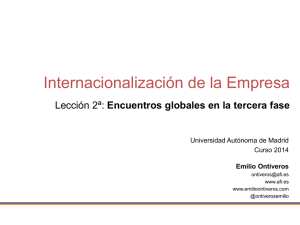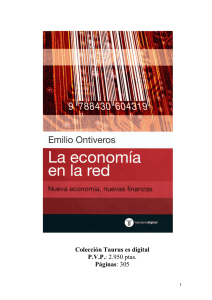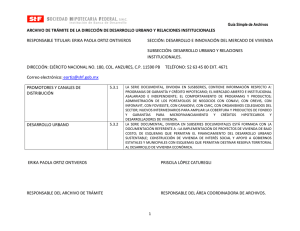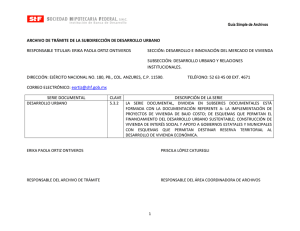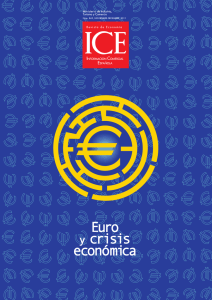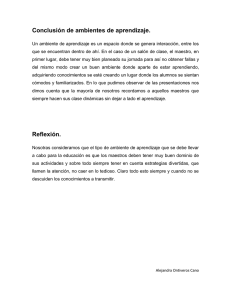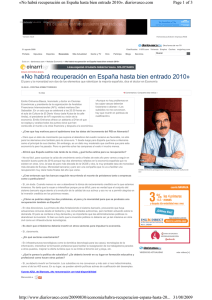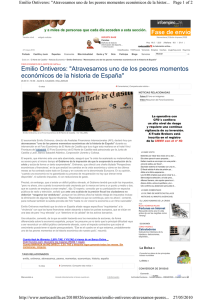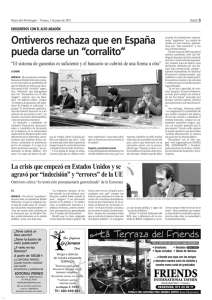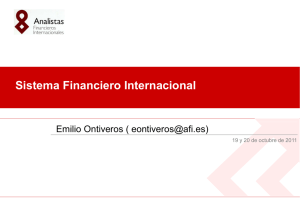Encuentros globales en la tercera fase
Anuncio
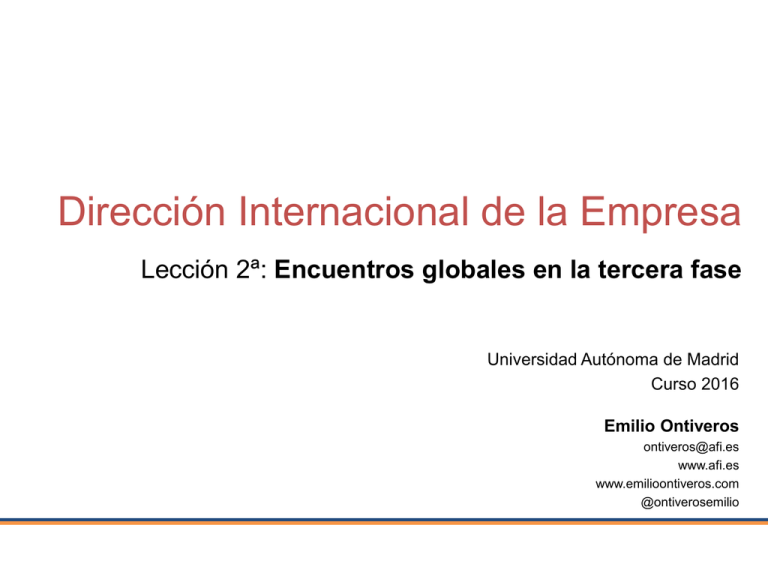
Dirección Internacional de la Empresa Lección 2ª: Encuentros globales en la tercera fase Universidad Autónoma de Madrid Curso 2016 Emilio Ontiveros [email protected] www.afi.es www.emilioontiveros.com @ontiverosemilio Programa Introducción. El ámbito de estudio. 1. La dinámica de integración global. Fases. 2. Encuentros en la tercera fase. 3. La crisis global de 2007. La más compleja de la historia. 4. La irrupción de las multinacionales de los emergentes. 5. La nueva demografía. 6. Un mundo dispar: desigualdad y pobreza. 7. La búsqueda de la sostenibilidad. 8. Enfrentar la complejidad y la incertidumbre. 9. La internacionalización de la empresa española (1) 10. La internacionalización de la empresa española (2) 2 2. Encuentros globales en la tercera fase 3 Contenido 2.1. Discontinuidad política. * Fin guerra fría. * Instituciones multilaterales. OMC. * Homologación de políticas. 2.2. Discontinuidad tecnológica. Impacto de las TIC. 2.3. Desequilibrios globales. 2.4. Irrupción de las economías emergentes. 4 2.1. Extensión de la economía de mercado Homologación de políticas económicas. Homologación institucional. Desaparición de las economías de planificación central. 5 6 2. 2 Discontinuidad tecnológica. Impacto de las TIC 2.1. ¿Puede hablarse de revolución tecnológica? 2.2. Implicaciones económicas y empresariales. 2.3. Contraste con otras fases de discontinuidad tecnológica. 7 Puede hablarse de revolución Tecnológica? 8 9 A recent iPhone, right, has thousands of times more computing power than an Osborne Executive "portable" computer from 1982. Such an improvement is an example of Moore's Law in action. Fuente: MIT News 10 11 12 Individuals who ordered or purchased goods or services on the Internet, 2011 or latest year available (percentage of individuals) 13 14 15 16 17 18 19 20 Citizens Using the Internet to Interact with Public Authorities by Age Group, 2012 21 Digital technologies are spreading rapidly in developing countries Sources: World Development Indicators (World Bank, various years); WDR 2016 team; http://www .internetlivestats.com/one-second/ (as compiled on April 4, 2015). Data at http://bit.do/WDR2016-FigO_4. 22 Drivers of change, industries overall Share of respondents rating driver as top trend, % 23 24 2.3. Desequilibrios globales 26 27 Capital Flows, 2011 28 Source: Multipolarity: The New Global Economy (The World Bank, 2011). 29 30 31 32 2.4. Irrupción de las economías emergentes 33 GDP share of the developed (OECD) versus the emerging and developing economies (non-OECD), 1990–2030 (% of global GDP in purchasing power parity terms) Source: OECD. Data from 2009 onwards are projections . 34 Share of the global economy in purchasing power parity terms 35 36 37 38 39 40 41 42 43 44 45 46 47 Chindia 49 50 51 53 54 55 56 China 57 58 59 60 61 62 63 64 65 Economía China 13 Rebalancing in China and financial volatility are dragging on global markets Growth is slowing and rebalancing from manufacturing to services, but with mounting financial vulnerabilities Composition of growth in China Currency depreciation and declining reserves External financial management is proving to be challenging Note: Manufacturing (secondary) includes construction. Source: Chinese National Bureau of Statistics; People’s Bank of China; and Thomson Reuters. 67 68 69 70 Bibliografía adicional de la Lección 2: ARORA, VIREK Y VAMVAKIDIS, ATHANASIOS (2010) “Gauging China’s Influence” Finance & Development, Diciembre, Vol. 47, No. 4 EL-ERIAN, MOHAMED (2012) “Stable Disequilibrium” Finance & Development, Junio, Vol. 49, No. 2 KOSE, M. AYHAN Y PRASAD, ESWAR S. (2010) “Emerging Markets Come of Age” Finance & Development, Diciembre, Vol. 47, No. 4 McKinsey Global Institute, 2014, “Global Flows in a Digital age: How Trade, Finance, People, and Data Connect the World Economy” ONTIVEROS, EMILIO (2001) "La Economía en la Red". Taurus, 2001 ONTIVEROS, EMILIO (2010) “Tecnologías de la información y prosperidad" Revista Ateneo del nuevo siglo nº 111/2010. Ateneo de Málaga. Diciembre ONTIVEROS, EMILIO (2011) “La desigualdad no es rentable" El País Negocios. Laboratorio de ideas. 1 de mayo. 71 Bibliografía adicional de la Lección 2: STIGLITZ, JOSEPH E (2002) “El malestar en la globalización” Taurus, Madrid Wolf, Martin ZHU, MIN (2011) “Emerging Challenges” Finance & Development, Junio , Vol. 48, No. 2 Vídeo: The iPhone Economy: http://goo.gl/XiSii 72
